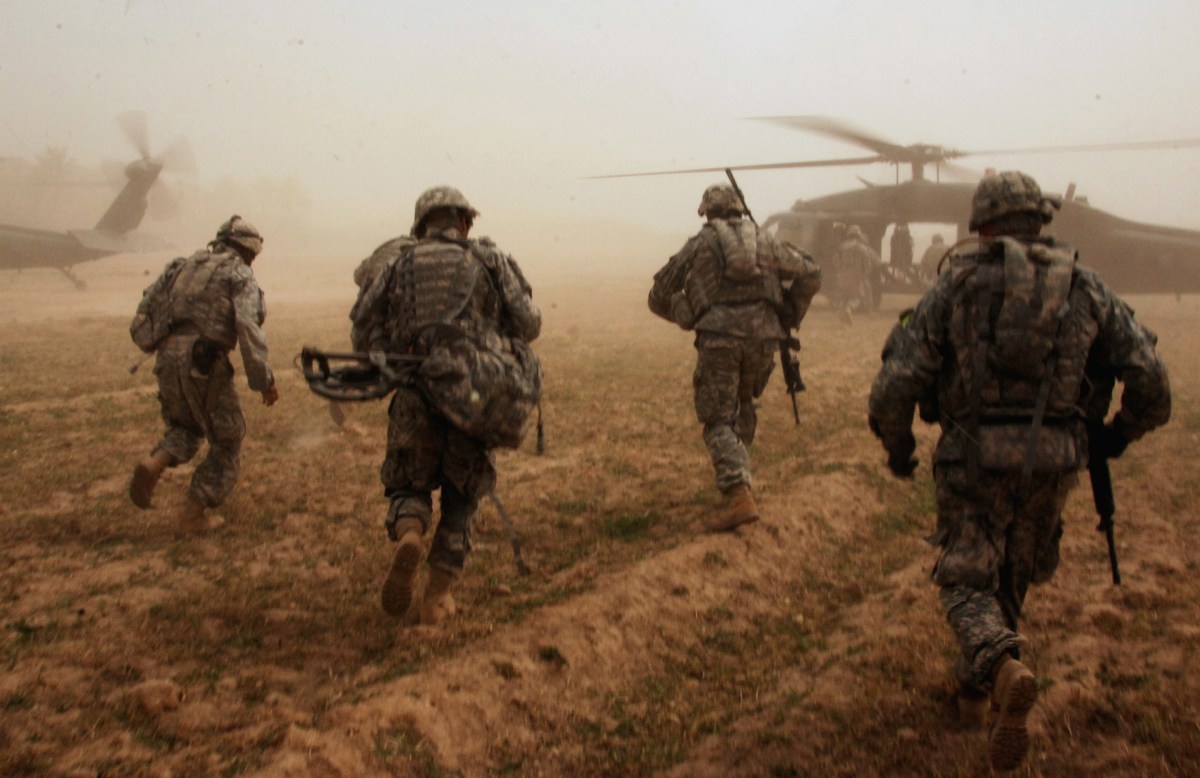Germany on Thursday joined a growing list of nations to approve military support against the self-declared Islamic State in the wake of high-profile attacks outside Syria.
Germany’s parliament overwhelmingly approved a non-combat measure that would send reconnaissance jets and personnel to buttress France’s own war against the Islamic State, also know as ISIS or ISIL.
The vote came on the same day the United Kingdom carried out its first air strikes against the apocalyptic militant group after its own parliament one day earlier approved the bombing campaign during a contentious debate on whether or not to get involved. Both Germany and the UK decided to act in response to the vicious assault in Paris that left 130 dead three weeks ago.
The two nations join Russia and France as countries that have given their respective armed forces some measure of authority to get involved in the conflict. In the case with Russia, however, President Vladimir Putin has been accused of targeting rebels seeking to overthrow Syrian President Bashar al Assad in order to prop up the embattled president’s regime.
Meanwhile, after more than a year of combating the bloodthirsty terror organization through an intense air bombing campaign, the United States Congress—the only government branch authorized to approve war—has yet to even hold a vote on the country’s ongoing war against ISIS.
Critics charge that Congress has largely abdicated its duty, even as elected officials and presidential candidates call for a more forceful response against ISIS.
The lack of war authorization hasn’t stopped the Obama administration from targeting ISIS in both Syria and Iraq. The White House is currently relying on war authorization from 2001 and 2002, both implemented in the wake of the Sept. 11, 2001 attacks, to justify bombing ISIS positions. Aside from this campaign, the White House announced in October that it would deploy several dozen US Special Forces to advise moderate forces fighting ISIS.
Civil liberties groups have argued that the authorization to use military force (AUMF) from 2001 and 2002 are both overbroad and outdated. The former was authorized under President George W. Bush to use force against those responsible for 9/11, meaning al Qaeda. ISIS did not exist at the time, and although it was borne out of al Qaeda, it was disavowed last year by the terrorist organization. And the 2002 AUMF approved use of force against Iraq.
After the White House announced deployment of US Special Forces, several members of Congress said it was time to officially authorize war against ISIS. The White House in February proposed its own version that would authorize a three-year offensive against ISIS and any “associated forces” or “closely-related successor.” It would also sunset the 2002 AUMF.
But Congress has yet to hold a vote on its merits.
Rep. Adam Schiff (D-Ca), the Ranking Member of the House Permanent Select Committee on Intelligence, who proposed his own AUMF last January, tried to force Congress to debate war authorization as part of an amendment to a defense appropriations bill in June, but it was rejected.
Schiff has been one of the most outspoken critics of Congress’ inaction on the issue.
“I applaud Prime Minister Cameron for urging his nation to join the fight against ISIS in Syria by providing British bombers to attack the terror organization’s targets,” Schiff told the Press in a statement Friday through a spokesman. “And the British Parliament deserves credit for doing something the US Congress has yet to undertake, and that is, allow a full debate and vote on the war effort. British air support in Syria would add an important new contribution to defeating ISIS and ending its stranglehold on the people of Iraq and Syria.”
Locally, Rep. Peter King (R-Seaford), chairman of the House Subcommittee on Counterterrorism and Intelligence, believes “We should go all out but do not need authorization,” his spokesman said in an email.
Although the Obama administration has stated it believes it currently has proper authorization to justify its war on ISIS, it still sought a vote from Congress to ostensibly demonstrate a united front.
During an address to the nation Sunday night, Obama reiterated his desire for Congress to act.
“If Congress believes, as I do, that we are at war with ISIL, it should go ahead and vote to authorize the continued use of military force against these terrorists,” Obama told America, four days after 14 people were killed in an ISIS-inspired shooting in Southern California. “For over a year, I have ordered our military to take thousands of airstrikes against ISIL targets. I think it’s time for Congress to vote to demonstrate that the American people are united, and committed, to this fight.”
Schiff has taken the position that if US officials are willing to tell service members to go to war, that Congress should at least be able to hold a vote.
“If this is worth fighting ISIS, and I believe it is,” Schiff said on the House floor back in June, “it’s worth having Congress do its job.”



































